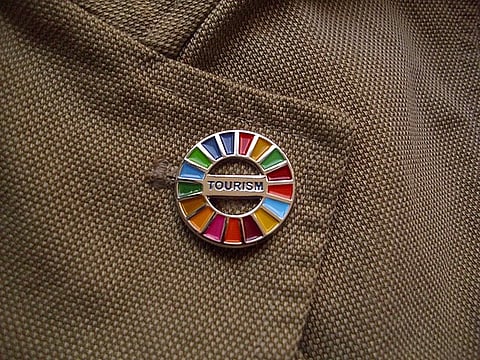

Being a traveller in today's world demands that we contribute positively to the destinations we are visiting. Gone are the days when people could feign ignorance about their impact on the living world. With the advent of the technological age and social media, all of us can educate ourselves on how best to serve the communities and beings in the places we visit, lessen the negative impacts of tourism, such as littering, and try our best to be conscientious citizens of planet Earth.
Here are 10 helpful ways for tourists to travel responsibly and lightly on the only home we have.
Jute bags are helpful to the planet as they reduce the burgeoning amount of plastic in the natural world. While littering is a serious threat, plastic materials take centuries to breakdown into microplastics, the latter of which has even been found in human placentas and whose impact on our health is currently being studied.
This tip is not limited to the confines of a city alone. For instance, Europe's rail network connects cities within and across broders. Enjoy a train ride and slow down to appreciate the landscapes flicking past you. Use metros, trams, and buses or learn to carpool for longer distances.
While electric vehicles may not be perfect, using them eliminates the tailpipe emissions found in petrol and diesel cars. Plan ahead by noting charging stations on your route. Hybrid vehicles are often cheaper and a good option for budget travellers. Biofuels, green hydrogen and even compressed natural gas (CNG) are worthy alternatives that help lower carbon monoxide and nitrogen oxide levels.
The first step to cutting down on plastic use is by reducing the amount you buy, such as by carrying reusable water bottles and bags. If you do buy plastic items, try to get as much out of them as possible. This will also reduce your plastic consumption. Recycling plastic prevents littering and land pollution. Finally, repurposing is similar to reusing an item, except that the product is used to fulfil another goal. For instance, plastic grocery bags can double as trash can liners or to pack pet waste in.
QR codes, email and custom apps mean our phones now permit us entry into cinemas, airports, restaurants, hotels and events. Do not print tickets if you don't have to and travel with an electronic ticket. This helps save paper and is beneficial for the planet.
The COVID-19 pandemic of 2020 made many cities around the world expand their cycling routes as people realised the importance of being healthy and active. Opting to cycle instead of driving saves energy consumption and is also pollution-free.
Non-governmetal organisations like Clean Air Asia and Chintan India have taken measures to inform the masses about the consequences of pollution, and also come up with campaigns to curb the same. Volunteering for NGOs helps travellers understand local issues and the effective methods required to prevent pollution. Plus, it's a lot of fun to make a contribution that helps to protect the planet.
Living in homestays, eating local food and hiring local guides are some of the best ways to give back to the local economy of the places you are visiting. Ditch mass-produced souvenirs and buy indigenous or locally-made handicrafts. This also applies to buying produce that is grown in and around the area you're visiting.
As much as possible, stay in one place for a long period of time to truly soak in the experience of living there. You'll discover out-of-the-way businesses, meet people and have interesting conversations, and understand the local ecology and way of life that a short trip packed with attractions just does not allow for. Slow travel is the best way to get the most out of travelling to a place.
If you're booking a safari or engaging in any form of wildlife tourism, do your research to find companies, organisations and people that actually care for the animals, planets and communities in the area. Alas, a lot of organisations are jumping on the climate bandwagon and hoping to make a quick buck out of people's well-intentioned goals of travelling sustainably. Respecting natural places means keeping to marked trails, not feeding wildlife or approaching them and carrying your litter with you until you get to a proper disposal facility.
